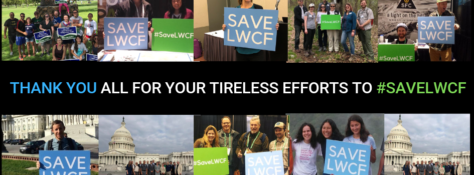News
To the outrage of groups across the country, the Trump Administration recently released its Fiscal Year 2020 budget proposal which slashes funding for important environmental programs and agencies. So what does this mean for New Yorkers?
Learn MoreNews
Earlier this year, State Senator Todd Kaminsky and Assembly Member Englebright proposed legislation to expand the state's bottle deposit refund program to several types of bottles and cans that are not currently included in the program like wine, liquor, and hard cider bottles.
Learn MoreNews
Late last month, Congress permanently reauthorized the Land and Water Conservation Fund, the largest public lands bill in a decade, representing a major win for environmentalists and recreatalionists nationwide.
Learn MoreNews
As Cuomo and the newly elected state legislature hash out the details of the proposal in the coming months, they can look to California to learn how a friendly competitor is meeting similarly ambitious goals.
Learn MoreSupport for congestion pricing has been growing. Governor Cuomo, Mayor de Blasio, and many legislators have publicly declared support for it. Over 500 NYLCV members have taken action to tell their representatives that they support congestion pricing.
Learn MoreNews
In a rarely before seen act, the State Senate and State Assembly passed not one but two NYLCV priority bills in this the first week in February! One bill will prevent exploration and drilling for oil and natural gas in New York-owned coastal waters. The other bill will prohibit purse seine fishing for menhaden, a species of fish fundamental to the marine ecosystem.
Learn MoreNews
Clean and Healthy New York, which NYLCV works closely with as part of the JustGreen Partnership, this month laid out a road map for identifying and eliminating toxins from everyday consumer products ranging from toothpaste to floor polish as part of a fundamental shift in the way we manufacture these products.
Learn MoreNews
Traffic is a notable problem in New York as mass transit is becoming riddled with delays, signal failures, and decades-old infrastructure. Congestion pricing would raise much-needed funding for long-term improvements to the region’s transit system, reduce air pollution and greenhouse gas emissions from cars, and decrease traffic congestion by encouraging the use of public transportation.
Learn More
